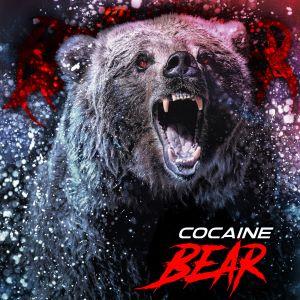A Mississippi medical marijuana dispensary operators lawsuit over a state advertising ban gets thrown out of federal court, and more.

Federal Judge Throws Out Lawsuit Over Mississippi Restrictions on Medical Marijuana Advertising. A federal judge in Jackson has dismissed a lawsuit from a medical marijuana dispensary owner who sued the state over regulations that prevent medical marijuana businesses from advertising in most media.
US District Court Judge Michael Mills ruled last week that because marijuana remains illegal under federal law, a medical marijuana business is not a "lawful entity" and thus does not enjoy the constitutional protections granted to most commercial speech.
The case was filed by Clarence Cocroft II, the owner of Tru Source Medical Cannabis in Olive Branch. He argued that the state's ban on advertising of medical marijuana businesses imperiled his ability to do business.
But undoing the restrictions would be a "drastic intrusion upon state sovereignty," Judge Mills held. "This is particularly true considering the fact that, by legalizing marijuana to any degree, the Mississippi Legislature has gone further than Congress itself has been willing to go," Mills wrote. "In light of this fact, on what basis would a federal court tell the Mississippi legislature that it was not entitled to dip its toe into the legalization of marijuana, but, instead, had to dive headfirst into it?"
After the verdict, Cocroft said he still maintained that the state's regulations violate the First Amendment and that he would appeal.
"I'm prepared to fight this fight for as long as it takes," Cocroft said. "This case is bigger than me and my dispensary -- it is about defending the right of everyone to truthfully advertise their legal business in the cannabis industry."
Drug Policy
Florida Governor Signs Bill Protecting State from Bears on Cocaine. Gov. Ron De Santis (R) has signed into law legislation popularly deemed the "bears on crack" bill, House Bill 87. The bill, which aims to protect residents from cocaine-fueled bears, provides a "stand your ground" defense for killing the animals.
The new law clarifies that a person is not subject to any civil or criminal penalties for killing a bear if he "reasonably believed that his or her action was necessary to avoid an imminent threat of death or serious injury to himself or herself or to another, an imminent threat of death or serious injury to a pet, or substantial damage to a dwelling…."
Although there are no known cases of cocaine-fueled bears attacking Florida residents, there was a movie released earlier this year that featured such a critter, "Cocaine Bear." That was apparently on the mind of bill sponsor Rep. Jason Shoaf (R-Port St. Joe).
"We're talking about the ones that are on crack, and they break your door down and they're standing in your living room growling and tearing your house apart," Shoaf said during a committee hearing on the bill."When you run into one of these crack bears, you should be able to shoot it, period. And you shouldn't have to pause or be afraid you're gonna get arrested or harassed or pay fines, that's just crazy."
In the movie "Cocaine Bear," which is based on a true story, a black bear got into duffel bags of cocaine thrown out of a smuggler's airplane over Tennessee in 1985. That bear died from a cocaine overdose, but there were no reports of it attacking anybody or terrorizing neighborhoods.
And now, Floridians can breathe a bit easier after the governor and legislature have neutralized this imaginary threat.
Drug Testing
California Bars, Nightclubs Must Now Provide Date Rape Drug Testing Kits. As of today, bars, nightclubs, and any other establishments that sell alcohol to be consumed onsite are required to provide drug testing kits to those who request them. The new law, formerly Assembly Bill 1310, allows consumers to request kits to test for "roofies" or Rohypnol, a sedative drug which is associated with attempted sexual assaults.
"It's security for those coming out to drink," said Brittany Halsell of Redwood City. "Sometimes you get carried away in a conversation and you turn your head and well, people are slick out here. You always have to be careful. It's a wonderful idea."
The test kits test for Rohypnol, ketamine, and GHB. While bars, nightclubs, and other establishments that just sell alcohol -- not food -- are required to provide the kits, they are not required to provide them for free.
"It's a great idea to protect the public and to give them a voice so they feel part of it," said Ja'vonn Williams, the assistant general manager of San Pedro Social. Williams said San Pedro Social will have bartenders and security offers give the cards to those who request them.
The state Department of Alcohol Beverages Control says the new law will effect some 2,400 licensed establishments across the state.
This work by StoptheDrugWar.org is licensed under Creative Commons Attribution-ShareAlike 4.0 International
Add new comment